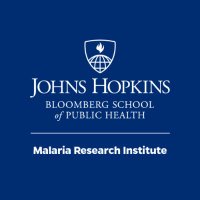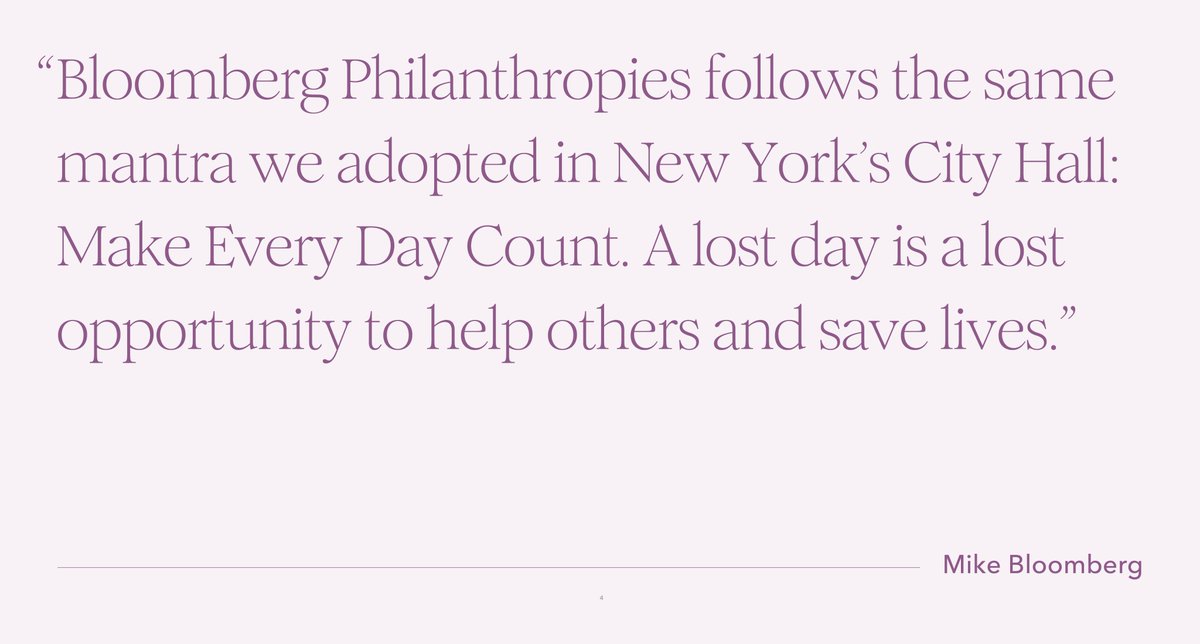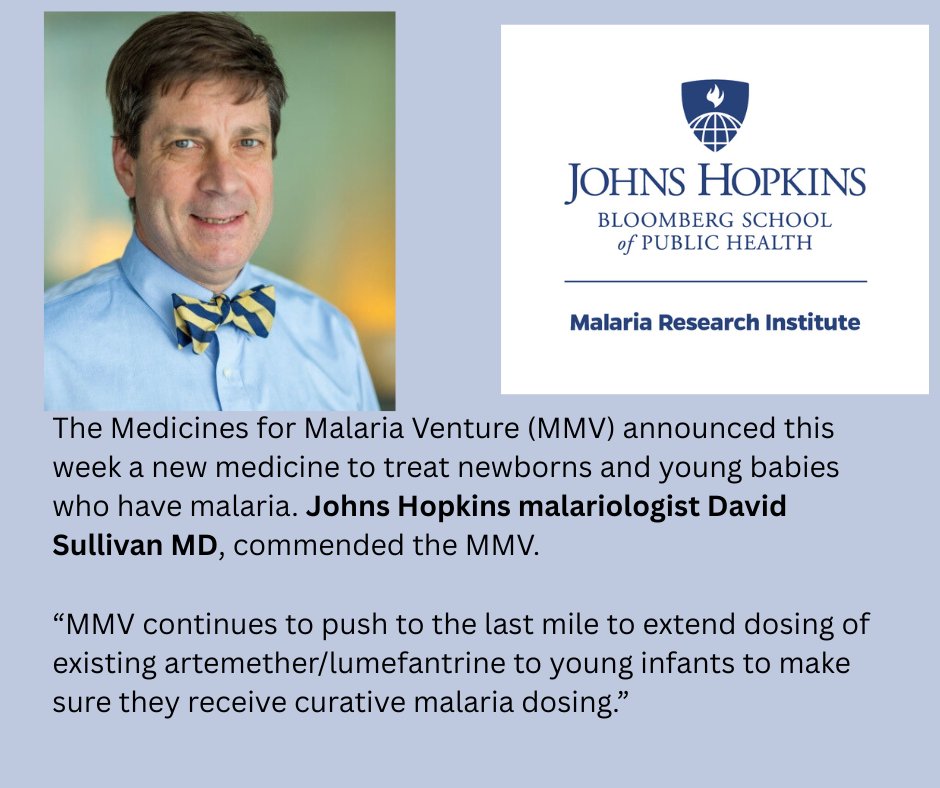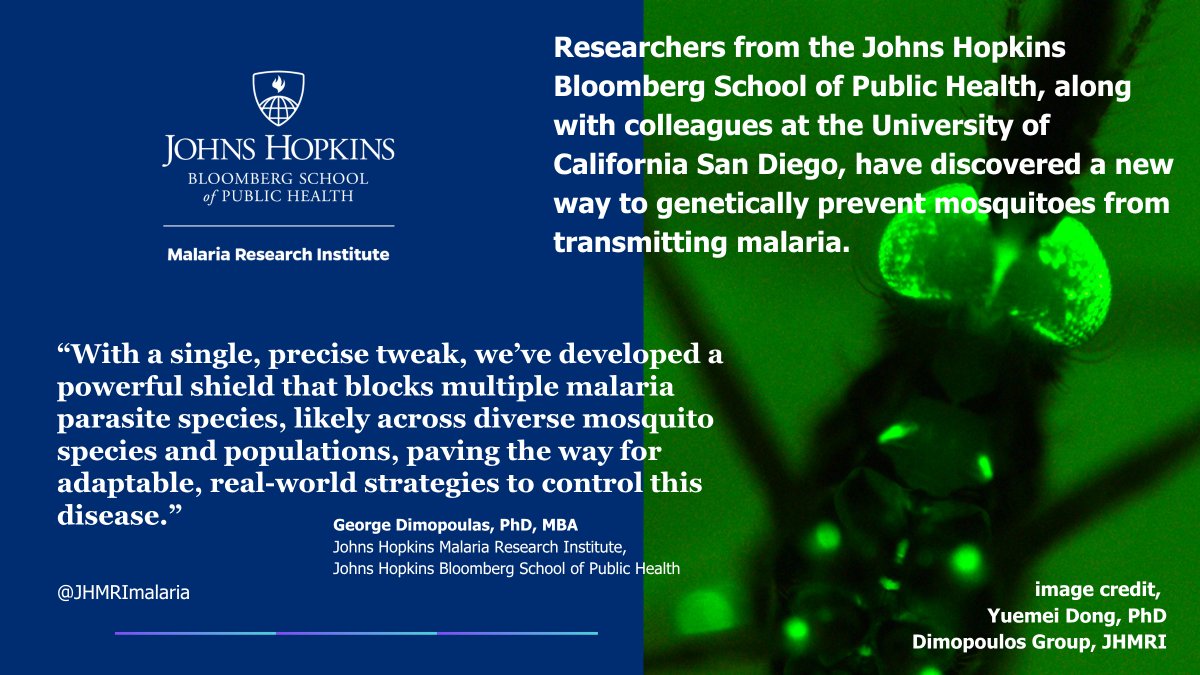
Johns Hopkins Malaria Research Institute
@jhmrimalaria
Leading Science for a Malaria-Free World. At the Bloomberg School of Public Health.
ID: 65679343
http://malaria.jhsph.edu 14-08-2009 16:56:17
2,2K Tweet
3,3K Followers
692 Following

News podcast: Jane Carlton Johns Hopkins Malaria Research Institute on #WorldMalariaDay2025; Daniel Rubinoff University of Hawaii at Manoa on rare "bone collector" caterpillar; Brian Huntly Haematology at Cambridge on tackling #AML cancer; and Aqeel Shamsul Frontier Space Technologies on growing food in space. thenakedscientists.com/podcasts/naked…

The last talk of the day, Dr. Stephanie James (GeneConvene) discusses the roadmap for gene drive technologies, and their potential to transform #malaria public health


Thank you to everyone who joined us for the 2025 #WorldMalariaDay Symposium, Building a Better Mosquito! 🦟 Stay tuned for Vector Encounter—our upcoming two-day event on arthropod disease vectors impacting human health. Johns Hopkins Bloomberg School of Public Health Jane Carlton publichealth.jhu.edu/malaria-resear…


"The malaria map is shrinking. With vaccines, gene editing, and African nations stepping up, we can eliminate #malaria. But urgency is critical; retreating now would waste decades of progress." Jane Carlton reflects on #malaria progress in SciDev.Net scidev.net/global/opinion…

In our latest podcast, Lemu Golassa Addis Ababa University explains how parasite diversity in Ethiopia could limit the effectiveness of current #malaria vaccines 💉 publichealth.jhu.edu/malaria-resear…


Congratulations to JHMRI faculty Amy Wesolowski, Chris Potter, and Jane Carlton (with SpanglerLab) for being awarded 'Discovery' and 'Catalyst' awards from Johns Hopkins to advance cutting-edge science toward a #malaria-free world! Johns Hopkins Bloomberg School of Public Health Johns Hopkins Epidemiology Johns Hopkins Medicine






This week, Jane Carlton and others from Johns Hopkins Malaria Research Institute spent time with research scientists in Ethiopia, planning expanded field research aimed at eradicating #malaria, which is responsible for more than 600K deaths each year, mostly children under 5.


Make Every Day Count. It’s a mantra that drives our work at Bloomberg Philanthropies. In our new Annual Report, I write about how we’re bringing that approach to solutions that can save and improve lives around the globe. bit.ly/4o8xprG



tinyurl.com/mae4b99w "These mosquitoes will spread on their own and gradually transform the malaria-transmitting mosquito population to one that cannot transmit malaria." Johns Hopkins Bloomberg School of Public Health prof George Dimopoulos.

New today in the journal nature: UC San Diego and Johns Hopkins Malaria Research Institute biologists have developed a system that blocks malaria transmission in mosquitoes, the deadliest animals on Earth. go.ucsd.edu/44JdPKW #malaria


We are thrilled to celebrate the World Health Organization (WHO) declaration of Timor-Leste as malaria free! The Asian country becomes the 47th country in the world to eliminate #malaria. The Congratulations to the people and the public health professionals of Timor-Leste! 🇹🇱

